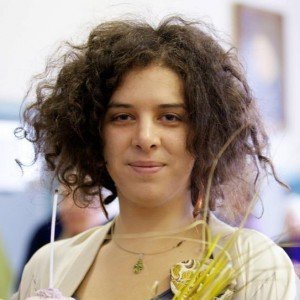 The province of Quebec has survived another leadership election. But not without great division, emotional conflict, and, more shockingly, an election-night shooting.
The province of Quebec has survived another leadership election. But not without great division, emotional conflict, and, more shockingly, an election-night shooting.
Leading up to the elections, there have been months of intense student and neighbourhood protests, the resurgence of nationalist sentiment, accusations of xenophobia, voter indecision around corruption vs. inexperience, and much more. Now, at a visceral level, I feel a tiredness setting in amidst friends, acquaintances, and other voices who can be heard through the vast array of communications media accessible to citizens to connect, discuss, debate, and commiserate.
In the process, I am struck by how much local politics remind me of my experiences with the realities of interfaith dialogue and activity. In fact, it makes me realize that I have actually been doing interfaith work since I was very young, even before I had a religious and denominational identity, because “faith” can accommodate so much more than simply the doctrines and dogmas of religion. This is my own context:
I was born in Quebec of immigrant parents who shared neither religious nor cultural backgrounds, one of whom was considered a “visible minority” person. I grew up vaguely aware of my “Anglo Quebecer” identity; however, I only began to discover what this might really mean for me when my parents sent me to school in French in grades six and seven. Culture shock! My French was rather shaky, and my peers were old enough to know I qualified as a “tête carrée” (square-head). I decided it was best to keep a low profile. I was fortunately saved from social alienation by a Cambodian student whom everyone appeared to like and respect. Our friendship may have come to life through our compatible personalities and interests; but what gave it the freedom to grow, I am convinced, was the simple fact that my inherited socio-political identity did not mean much to her. Her mother, a single parent, had immigrated to Quebec to escape the Khmer Rouge, so it may be safe to assume that making emotional investments in the Anglo-Francophone debates in the province may not have appealed to her and her family.
So, at a young age, I started to sense that my identity was not a simple one. I yearned to find something constant amidst the complexities that incessantly manifested, both on the “inside” within my own family and self, as well as on the “outside,” in other people’s families, at school, etc. Perhaps not intentionally, I resolved that travel would be a good way to do this.
Moving abroad, I rejoiced in ceasing to bear the label “tête carrée.” I happily soaked up the experience of learning new languages without the pressure of feeling that my personal identity depended on their assimilation. Often, I marvelled at the novelties and differences. Sometimes I cursed them. I made cultural faux pas, learned lessons, and developed authentic boundaries. When I eventually returned to Quebec eight years ago, my perspective on the province, and my rootedness and role therein, was completely refreshed and transformed.
Fast-forward to the recent provincial elections. I sense that the tiredness of the province’s (or nation’s) citizenry is rooted in a crisis of faith. As Quebecers, do our relationships with each other really fit into and depend on these much-used containers such as “Francophones,” “Anglophones,” “foreigners” etc.? Yes, I am “Anglo” by virtue of my mother tongue–and I do not wish to suppress it–but I am convinced my relationships with my fellow Quebecers can support and be enriched by so much more than an exchange of titles and historical facts.
It is with this spirit that I do interfaith work as a Christian and as an Anglican. With an open and respectful heart and mind, I search out the contours of the boundaries that separate me from others, as well as the many sweet spots where I find myself together with others, celebrating our shared experiences and wisdom. It’s exciting and challenging work, because it does not fulfill itself through the first appearances of common ground, i.e. the most basic things we can all agree on, but invites us to be curious, bold, and even experimental in our faith, owning it to its fullest extent by welcoming and learning from and through what is unfamiliar. As I see people looking to restore their faith in Quebec’s ability to build a better existence amidst and out of diverse origins, customs, interests, and dreams, I also challenge Anglicans, including myself, across Canada to dialogue as much as possible with our neighbours, no matter what their professed faiths and backgrounds.
